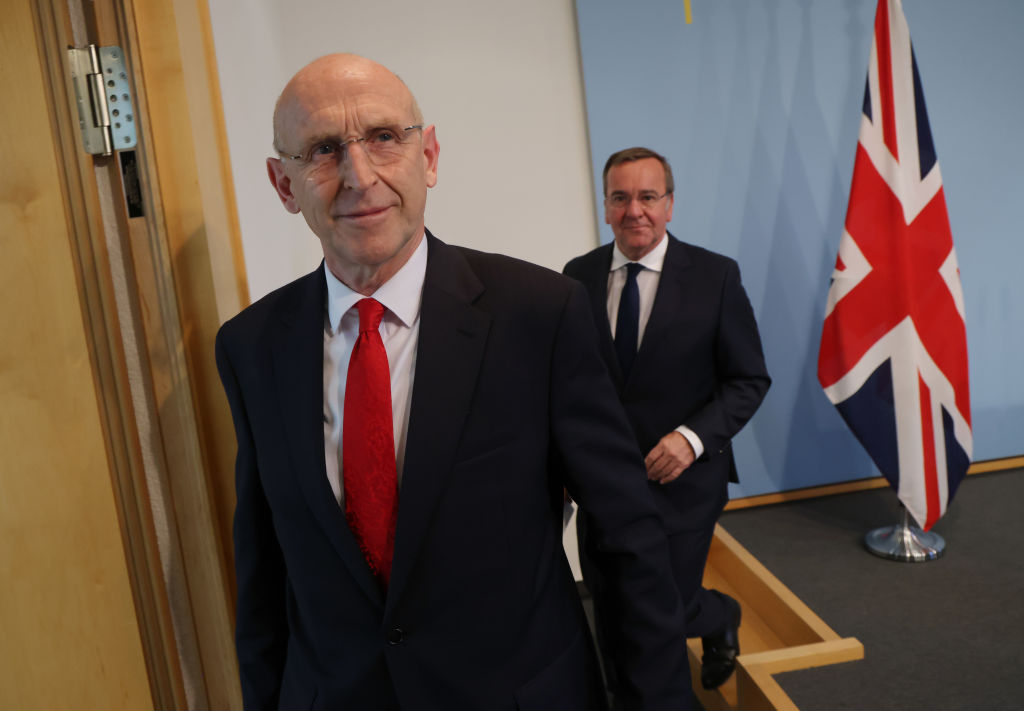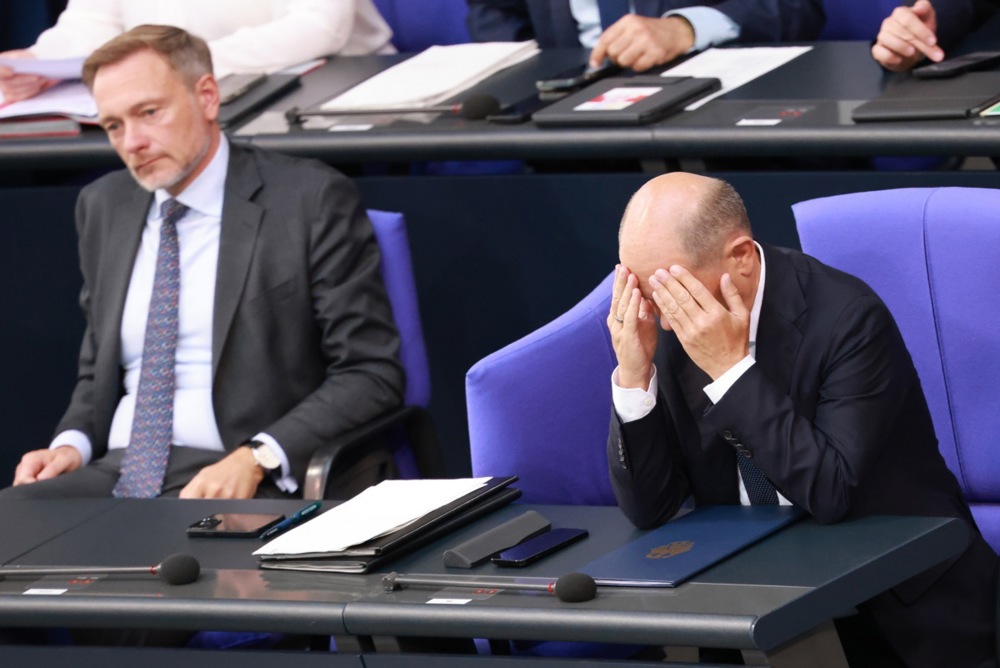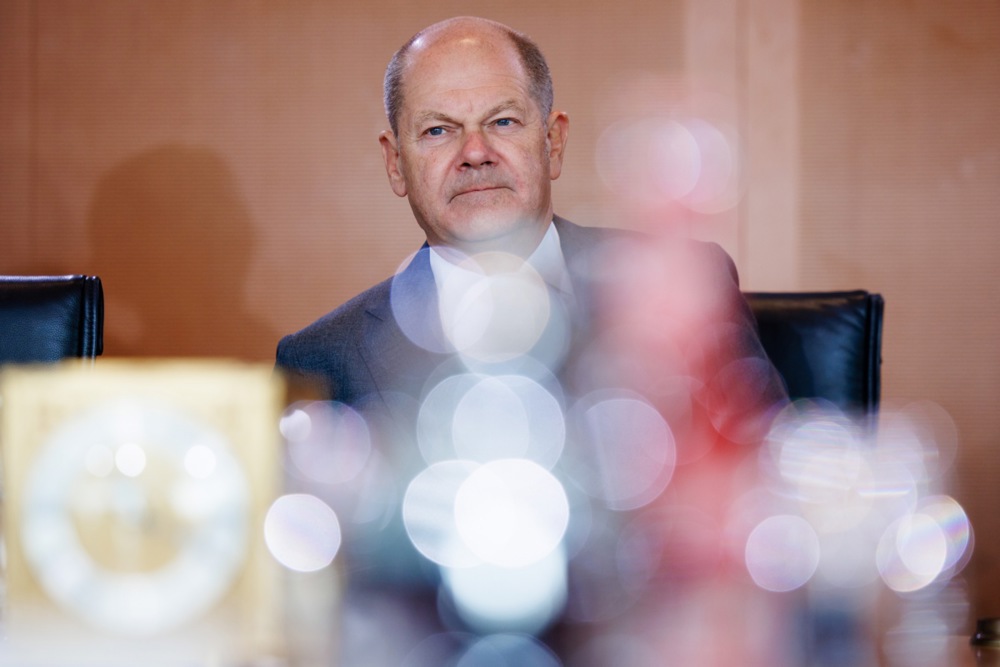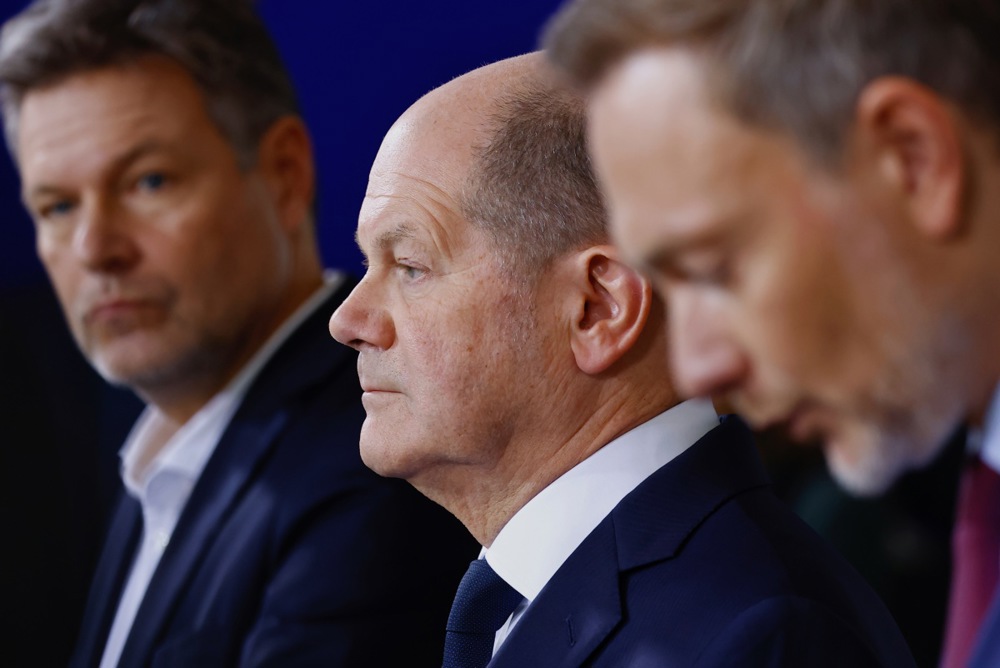The German government is being far too hesitant in rearming the Bundeswehr, said the head of a leading European defence contractor.
Current tank production has “fallen back to homeopathic doses” despite the international geopolitical situation, said Frank Haun, chief executive of KNDS, a Franco-German defence company which produces the Leopard 2 and Leclerc tanks.
The defence industry is not allowed to exploit its full capacities, he told Die Welt.
German defence minister “Pistorius is direct in his language, but in the case of battle tanks, he also initially only replaced the 18 Leopard 2s that went to Ukraine,” Haun said.
“It took until the summer of 2024 for an order for 105 additional Leopards to arrive. So something is happening, but very slowly,” he said.
Ammunition depots in Germany were basically empty, Haun added.
“Yes, more is being produced now, but that preferably goes to Ukraine. I hope that at some point we will replenish our own stocks so that we become resilient, robust and deterrent. We are not that in Europe at the moment,” he said.
He further noted Germany lacked self-propelled howitzers and the government had been very slow to look for new ones.
“How many self-propelled howitzers does Germany still have? A few dozen. But there have been no orders yet. Now talks have begun, but now a new federal government is coming. And that always automatically means provisional budget management. So no new projects,” said Haun.
About the security situation, “never since 1945 has it been so dangerous to be a European,” said the defence industry leader.
Poland’s defence spending is projected to reach 4.7 per cent of GDP by the end of 2024, despite the government’s acknowledgement of a revenue shortfall this year. https://t.co/7qmxb6nz6a
— Brussels Signal (@brusselssignal) October 23, 2024
Haun, who could speak freely before retiring on December 13, said Germany should drastically increase its defence budget.
He called for an increase of the budget from roughly €50 billion to over €80 billion, “if you take the security situation seriously”.
Only since the Russian invasion of Ukraine has Germany increased its defence budget to meet the NATO target of 2 per cent of GDP.
When the war in Ukraine broke out, Chancellor Olaf Scholz announced an overhaul of Germany’s foreign and security policy in a so-called Zeitenwende (paradigm shift).
His government created a special €100 billion fund to bankroll this new commitment.
However, Germany’s defence policies will soon face significant challenges, said the German Council on Foreign Relations.
Germany’s defence budget (€51.8 billion), Special Fund (€19.2 billion), and allocations from other budgets (around €7 billion) together added up to approximately €78 billion in 2023, meaning Berlin met its spending commitments that year.
However, Germany would be €85 billion shy in its defence spending in 2024, a gap expected to widen in coming years.
According to current plans, Germany’s total defence spending will decline sharply after 2026, once the Special Fund is exhausted. The regular defence budget remained unchanged.
But amidst an economic downturn, the country has also struggled with its budget, which has led to the collapse of Chancellor Olaf Scholz’s coalition and new elections on Sunday, February 23, 2025.
British Chief of the Defence Staff Admiral Sir Tony Radakin has warned that Britain and her Western allies were facing “wild threats” from hostile nuclear actors. https://t.co/WlBkOvrUse
— Brussels Signal (@brusselssignal) December 6, 2024





